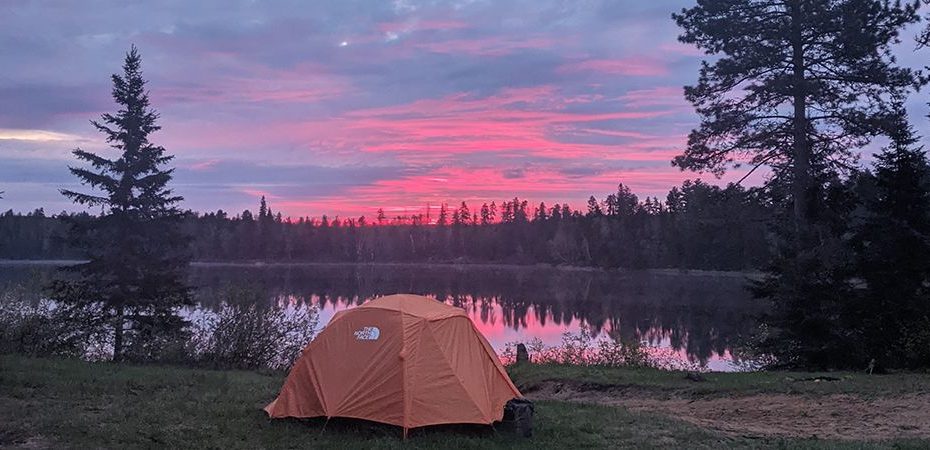Growing public awareness about the impacts of tourism on the environment is spurring a movement towards sustainable travel. Travellers are looking to reconnect with nature through meaningful experiences that are immersive, low impact and give back to communities.
In Ontario, sustainable travel is flourishing thanks to our unique flora and fauna, and varied outdoor opportunities. In fact, Ontario attracts more nature-based tourists than any other province in Canada.
Backcountry camping in northern Ontario © Justin Kreller
Ecotourism Defined
The International Ecotourism Society defines ecotourism as “responsible travel to natural areas that conserve the environment, sustains the well-being of the local people, and involves interpretation and education.” Ecotourism is known for:
Economic Empowerment – Ecotourism can empower local communities and bring long-term economic returns by centering their involvement and ownership of tourism development, management and operations.
Conservation Funding – Ecotourism can generate revenue for conservation, funding habitat restoration, species at risk conservation, waste clean-ups, remediation and more.
Environmentally Sustainable Design and Operations That Minimize Impact – Ecotourism aims to preserve the integrity and longevity of the ecosystems it relies on by minimizing tourism impacts from behaviors to design to operations. For example, responsible enjoyment and travel are promoted by adhering to the 7 Principles of Leave No Trace.
Environmental Awareness, Education and Protection – Ecotourism prioritizes environmental awareness and education to promote an understanding of the importance of protecting biodiversity. Interpretative guides and nature walks help travelers connect with nature to foster a sense of responsibility that encourages reducing traveler’s ecological footprint.
Preservation of Cultural Experiences and Knowledge – Ecotourism can help preserve social structures and cultural heritages. It prioritizes meaningful exchanges and knowledge-sharing to cultivate appreciation through learning and recognition of Indigenous peoples’ rights, knowledge and traditions.
According to the 2022 State of the Ontario Tourism Industry Report sustainable tourism is a growing preference among travelers; Indigenous tourism was the fastest-growing tourism sector; and interest in cultural tourism and intercultural exchanges is rising.
Eco-tourism in Ontario
Travellers seeking authentic experiences can enjoy an ever-expanding list of eco-minded adventures when exploring Ontario. To get you started, we have compiled a list of Indigenous and non-Indigenous ecotourism and nature-based operators to help you rediscover Ontario as an eco-tourist.
EcoAdventures offers guided tours and overnight multiday adventures across the Saugeen Bruce Peninsula. The proceeds from EcoAdventures go directly to support the Bruce Peninsula Biosphere Association.
Mādahòkì Farm is an agritourism experience located in Ottawa’s Greenbelt. It offers farm-to-table culinary experiences and authentic cultural experiences from an Indigenous perspective. Mādahòkì Farm is home to an Indigenous Marketplace, the Summer Solstice Indigenous Festival and a growing herd of endangered Ojibwe Spirit Horses.
Six Nations Tourism offers immersive cultural experiences and interpretative programming that teach guests about authentic Haudenosaunee culture.
Thrive Tours is an Indigenous-owned and operated eco-cultural touring experience in northern Ontario that immerses visitors in local Indigenous practices and philosophies. A zero-footprint strategy ensures that the environment is cared for the benefit and enjoyment of future generations.
Such A Nice Day (S.A.N.D.) Adventures is a nature-based adventure and education operator located in Rossport, Ontario. Its mission is to help visitors foster a connection to nature through courses, day tours, expeditions and programming.
Ecotourism defies long-standing trends of mass tourism through meaningful exchanges and mindful design. It benefits local people and environments directly by rethinking and remaking our relationships to travel and tourism. By focusing on conservation, education and community engagement, we can enjoy and protect Ontario’s wild spaces and wild species for generations to come.
The nature-based tourism project was generously supported by the Federal Economic Development Agency for Northern Ontario and the Northern Ontario Heritage Fund Corporation.
Resources
The post Exploring Ontario’s Wild Charms: A Guide to Sustainable Travel and How to Be an Ecotourist appeared first on Ontario Nature.
